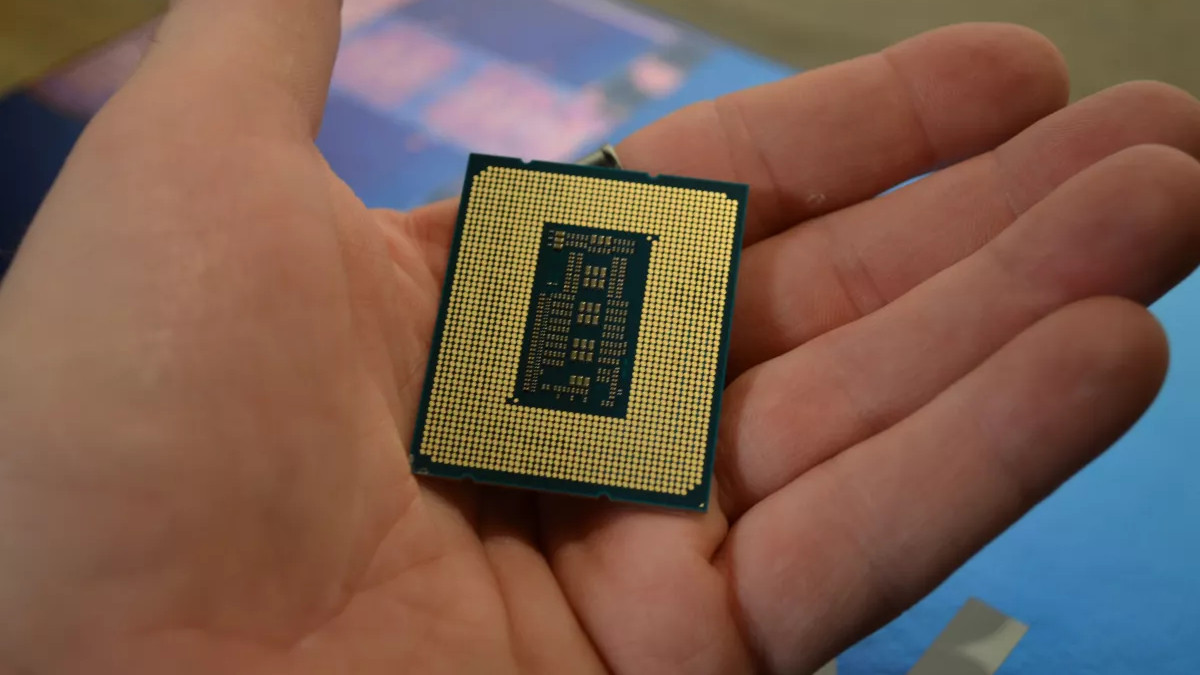We might get 14th-gen Intel CPUs as soon as this year, but there’s a catch
No Meteor Lake?

A fresh leak from Chinese social media platform Weibo has suggested that we could see 14th-gen Intel CPUs landing as early as this year – but there’s a pretty significant caveat that has me seriously worried about Intel’s upcoming processor plans.
Weibo user Golden Pig Upgrade (a phenomenal username, I have to say) has claimed that the previously-rumored 13th-gen Raptor Lake refresh will actually be branded as new 14th-gen products – with the ‘actual’ 14th-gen Meteor Lake CPUs serving as only part of the Intel Core 14000 series.
For the uninitiated, Raptor Lake is Intel’s manufacturing codename for its 13th-gen processor architecture; the architecture used to build its current range of CPUs, led by the super-powerful flagship Core i9-13900K. Meteor Lake is the next generation – though if this new leak is accurate, Intel’s 14th generation of Core chips won’t solely use the new architecture.
This isn’t entirely shocking, since Intel’s 13th-gen CPU range uses a blend of Raptor Lake and the previous-gen Alder Lake architectures. The catch, however, is that the leak suggests that Meteor Lake might not come to desktop PCs at all, with Intel’s 14th-gen desktop CPUs exclusively using the refreshed Raptor architecture. This aligns with previous rumors reported by Wccftech, so while we should tread carefully around leaks, there’s potentially some truth here.
Opinion: no true next-gen desktop CPUs sounds bad, but there are upsides here
While this sounds pretty bad on paper, it’s actually not the worst move from Intel. We’ve reported previously that Meteor Lake might not be that different from Raptor Lake anyway – and the new architecture is shaping up to be excellent for laptops thanks to improved power efficiency, too.
Meteor Lake is Intel’s first ‘tile-based’ CPU architecture, meaning the different segments of the processor are divided between four tiles as opposed to the conventional ‘monolithic’ design. This is set to drive massive gains in energy efficiency, which isn’t so important for desktop PCs since they’re not reliant on battery power.
However – and even taking the above into account – we don’t urgently need new desktop CPUs right now. The Core i7-13700K is a mighty processor with a reasonable price tag, so if you’re looking to upgrade, don’t sit around waiting for these supposed Raptor Lake refresh chips.
Get daily insight, inspiration and deals in your inbox
Sign up for breaking news, reviews, opinion, top tech deals, and more.
Intel and AMD’s release cadence for new CPUs has become increasingly aggressive, but we’re still featuring some last-gen chips on our best processors list; because, ultimately, there’s a real limit to how often people are willing to upgrade.
Faster laptop CPU releases make a bit more sense; that way, anyone buying a brand-new laptop can be (usually) assured that they’re getting the latest and greatest in processor performance. But with desktop computers, where your CPU can be upgraded whenever you choose, there’s really no need for this level of urgency in releasing new chips.
So just chill out a bit, Intel. Some leaks are even suggesting that Meteor Lake might actually suck, so perhaps it needs a bit more time in the oven. Don’t rush it – you knocked it out of the park with the 13th generation, so it’s okay to rest on your laurels for a while.

Christian is TechRadar’s UK-based Computing Editor. He came to us from Maximum PC magazine, where he fell in love with computer hardware and building PCs. He was a regular fixture amongst our freelance review team before making the jump to TechRadar, and can usually be found drooling over the latest high-end graphics card or gaming laptop before looking at his bank account balance and crying.
Christian is a keen campaigner for LGBTQ+ rights and the owner of a charming rescue dog named Lucy, having adopted her after he beat cancer in 2021. She keeps him fit and healthy through a combination of face-licking and long walks, and only occasionally barks at him to demand treats when he’s trying to work from home.